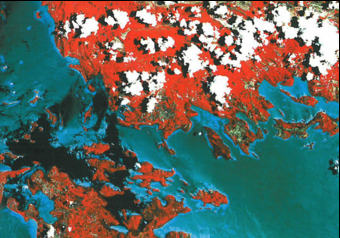Anthropocene Curriculum

The Anthropocene Curriculum is a long-term initiative that explores frameworks for critical knowledge and education in our ongoing transition into a new, human dominated geological epoch—the Anthropocene.
Since 2013, the Anthropocene Curriculum has brought together international scholars, artists, scientists, and the public as a community for collaboratively and experimentally exploring the questions of knowledge and its production in the Anthropocene. In a series of intensive, weeklong educational events—in so-called “Anthropocene Campuses”—, and in a wider range of small-scale workshops, public programs, field trips, and exhibitions, a broad array of formats have been developed and experimented with over the years in different cities and regions across the world.
Each of these local iterations of the Anthropocene Curriculum idea have been independently organized and tailored to meet the local demands and concerns of each specific cultural, geographical, and institutional context. The individual projects and people are linked through this open web platform, a common space that facilitates exchange, shares experiences, practices, and results, and offers a participatory knowledge base for a global community of Anthropocene research and education.
The Curriculum project is a collaboration of the Max Planck Institute for the History of Science and the HKW in Berlin.
The Project has created an archive of multiple case studies, and resources for curricula.